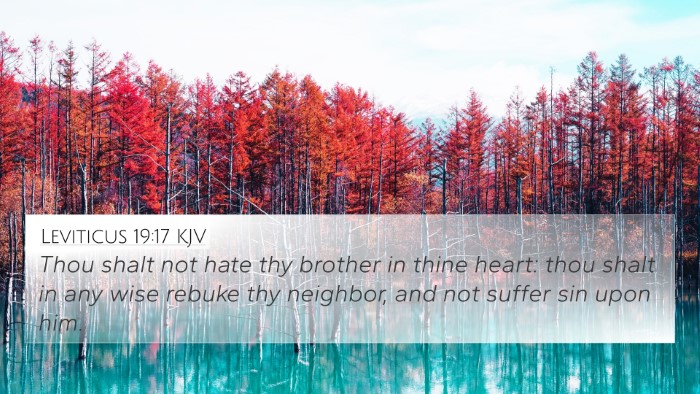Understanding Judges 19:3
Judges 19:3 states: "And her husband arose, and went after her, to speak friendly unto her, and to bring her again, having his servant with him, and a couple of asses: and she brought him into her father’s house: and when the father of the damsel saw him, he rejoiced to meet him."
This verse is part of a larger narrative that showcases a troubling period in Israel's history, marked by social and moral decline. The specific actions of the Levite in pursuing his wife offer rich insights as seen through various commentaries.
Commentary Insights
-
Matthew Henry's Commentary:
Henry elaborates on the husband's intentions, noting that his pursuit of reconciliation demonstrates a desire for restoration in his marriage. This act wasn’t merely about regaining a spouse but also reflects a broader theme of seeking peace after conflict. The Levite's journey signifies a personal quest for harmony amidst a backdrop of familial and societal discord.
-
Albert Barnes' Notes:
Barnes emphasizes the significance of the father’s joy upon seeing his daughter’s husband. This reaction illustrates the cultural values of hospitality and familial bonds during these times, revealing the underlying importance of reconciliation not just within the marriage but among the families involved.
-
Adam Clarke's Commentary:
Clarke addresses the implications of the Levite’s actions, including the expectation of welcome and forgiveness. He remarks on the Levite's role as both a husband and a representative of priestly duties, suggesting that his actions go beyond personal matters and reflect on Israel’s need for moral restoration.
Thematic Connections and Cross-References
Judges 19:3 connects to several themes in the Bible, including the importance of reconciliation, the role of family, and the consequences of social moral decay. Below are some related Bible verses that enhance our understanding of this passage:
- Malachi 2:14-16 - Discusses God's desire for faithfulness in marriage and the importance of returning to one another.
- Luke 15:20 - Parallels the idea of a joyful reunion in the story of the prodigal son, symbolizing acceptance and forgiveness.
- Proverbs 18:22 - Highlights the significance of finding a good spouse, reinforcing the value of marital relationships.
- Ephesians 4:32 - Encourages kindness and forgiveness among individuals, applicable to the Levite’s situation.
- Matthew 5:24 - References the urgency of reconciliation before approaching God with offerings, echoing the Levite's journey.
- 1 Corinthians 7:10-11 - Addresses the seriousness of marriage vows and the call for reconciliation in conflicts.
- 1 Peter 3:7 - Speaks specifically to husbands understanding their wives, highlighting relational dynamics.
Insights on Inter-Biblical Dialogue
Understanding Judges 19:3 also ties into a broader inter-Biblical dialogue about human relationships, societal norms, and moral requirements that appeared throughout Scripture.
- Exploration of Old Testament themes related to marriage and family dynamics.
- Comparative studies of forgiveness and reconciliation narratives in both Testaments.
- Connections made between the Levite's actions and teachings of Jesus regarding marital fidelity and forgiveness.
Conclusion
Judges 19:3 is representative of both personal struggles and broader societal issues. The commentaries provide multi-faceted interpretations that encourage deeper reflection on relationships and reconciliation.
This verse serves as a bridge to understanding key Biblical principles around conflict resolution and familial ties. By exploring cross-references, one can gain a fuller picture of how this passage resonates within the grand narrative of Scripture.














